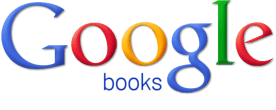The controversial Google book settlement has come undone. Although there is talk of trying to revise it or appeal the court ruling against it, it's essentially back to square one for efforts to create a broadly accessible digital public library.
On March 22, after more than a year of deliberation, Judge Denny Chin rejected the class-action settlement negotiated between Google on one side and the Authors Guild and publishers on the other allowing Google to scan in copyright and out of print books under certain circumstances.The New York Times reported the rejection and analyzed the implications in a later article. More analysis has followed.
Criticism had come from a wide range of sources, including legal scholars, genre writers, and Google competitors including Amazon and Microsoft. Much of their focus was on the settlement's plans to digitize and distribute copies of "orphan" works that are out of print and may still be in copyright, but whose owners cannot be located. Including those books was a centerpiece of the digital public library concept, but that part of the settlement essentially rewrote copyright law.
Judge Chin suggested that he might look favorably on an "opt in" agreement rather than the "opt-out" approach that Google had pushed, but that is not a minor change. It would block inclusion of orphan works, which may be a show-stopper for Google.
The judge also suggested that Congress could resolve the issue by revising the terms of copyright. That would be the cleanest solution to a touchy problem, but getting Congress to produce a reasonable revision could be a tough problem. Congress itself played a major role in creating the orphan works problem by extending copyright to 70 years after the author's death, and effectively grandfathering the extension back to works published in 1923.
Another alternative would be to create a nonprofit Digital Public Library of America, an idea being explored by the Berkman center at Harvard, which has been covered in a New York Times article. That approach would avoid granting a private company a monopoly on orphan works, as the original settlement would have done for Google. However, such a nonprofit library probably would need Congressional or judicial help to deal with copyright issues.
Don't expect any quick and easy answer to the complex problems of creating a digital public library. There are too many stake-holders who want a piece of the action, and too little money to make all of them happy. If you want to find a way to market your out-of-print books, you're on your own for the time being.




